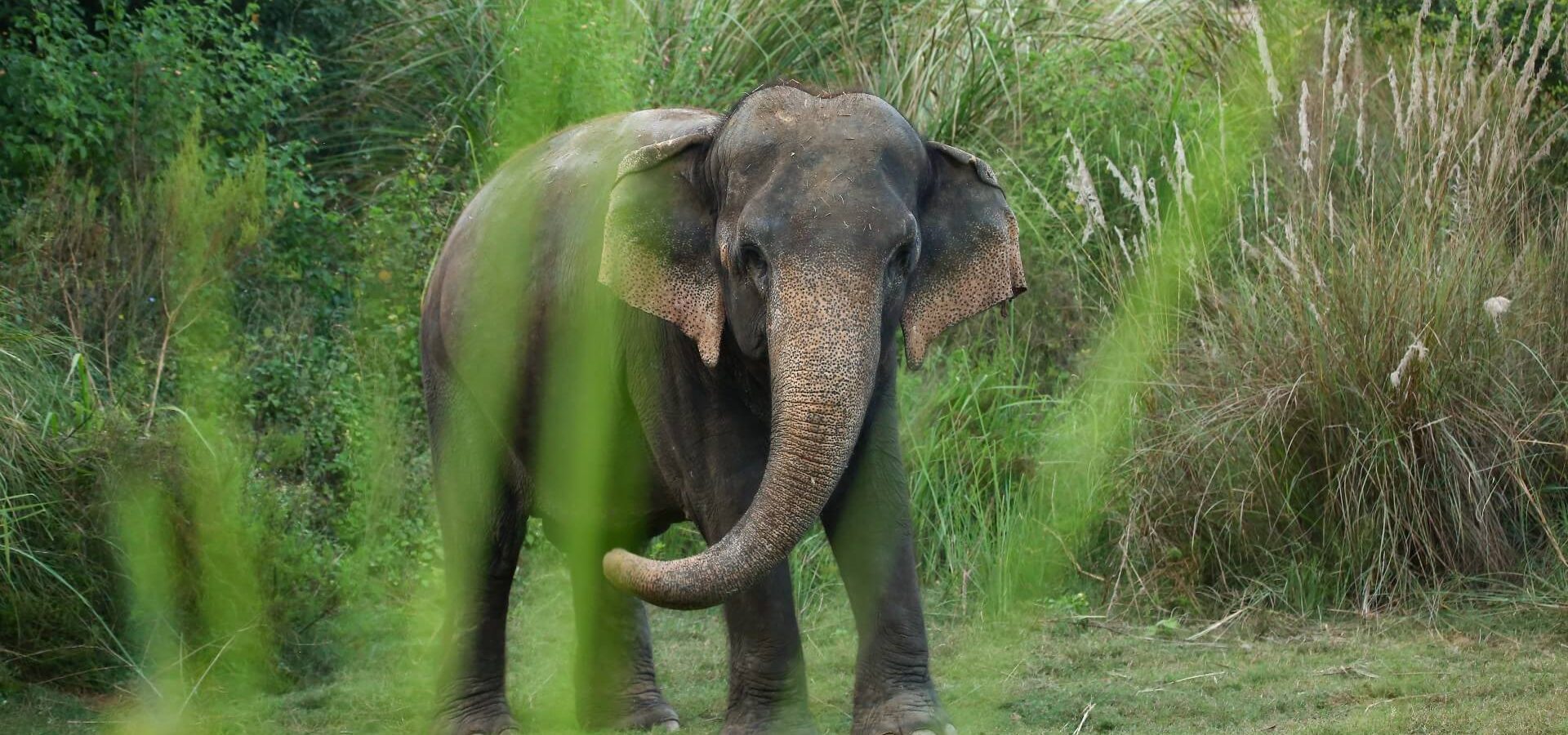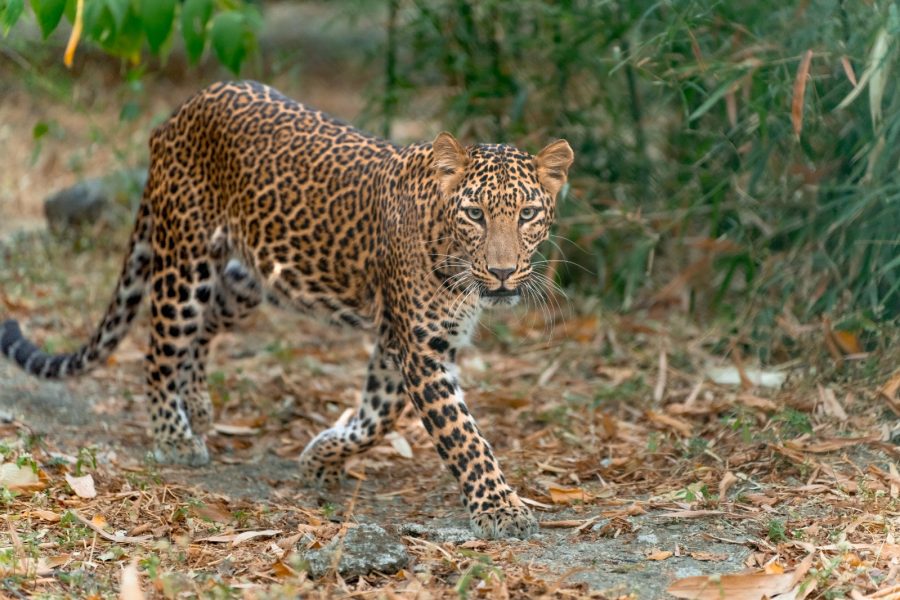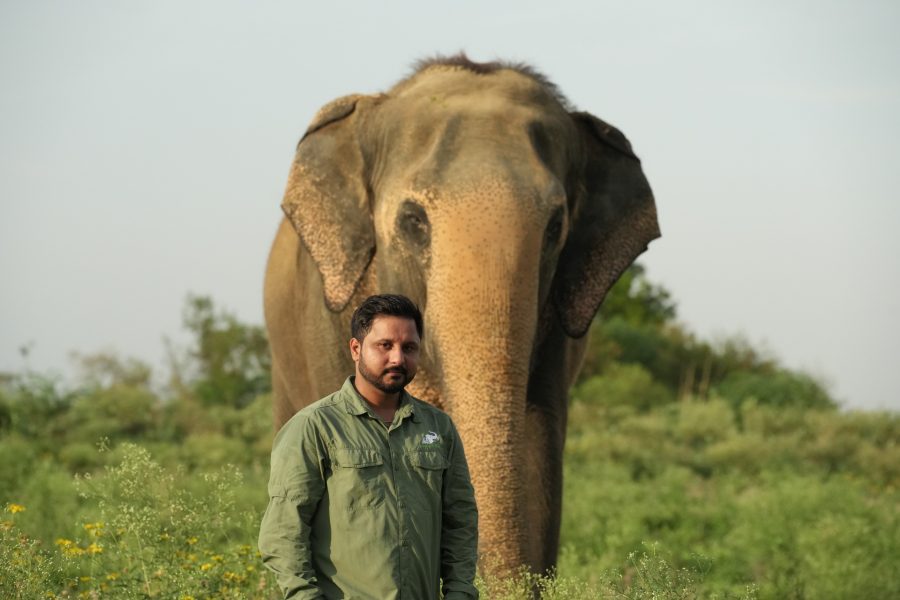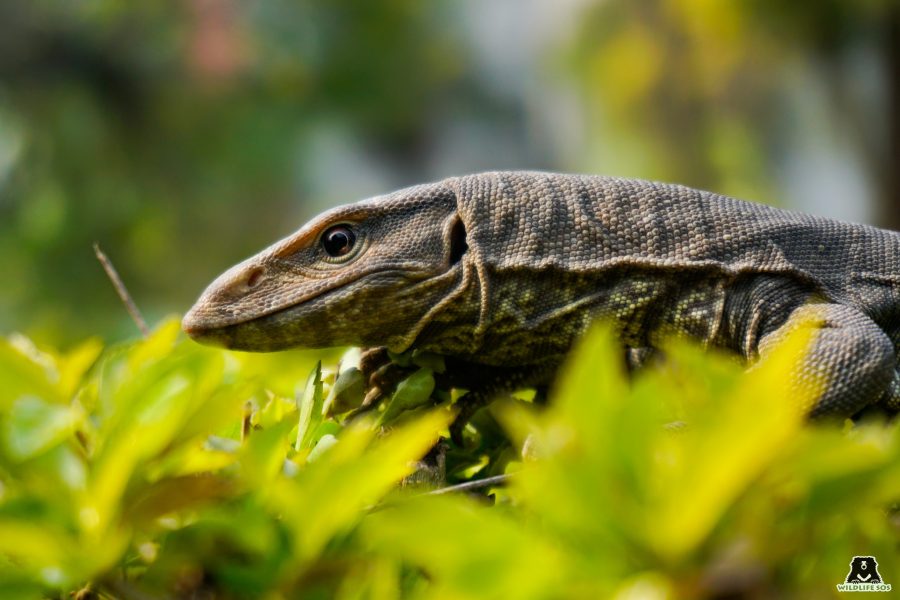A few years ago, when our vehicles would screech to a halt at the traffic signal, it would not be unusual to find an elephant right in the middle of the traffic jam in Delhi. The man perched atop the elephant’s back would poke a bullhook behind the elephant’s ear, forcing it to move. The exhausted elephant would slowly make its way through the blaring horns in great discomfort and pain.
While Delhi’s dark alleys have witnessed many such stories of abuse, Jasmine’s story is the light at the end of the tunnel, which fills us with hope. Jasmine’s life was riddled with abuse and exploitation as a begging elephant – broken, battered and weak. When the day concluded, Jasmine was restrained with heavy chains on concrete stone floors which severely affected her joint health, leading her to develop osteoarthritis.
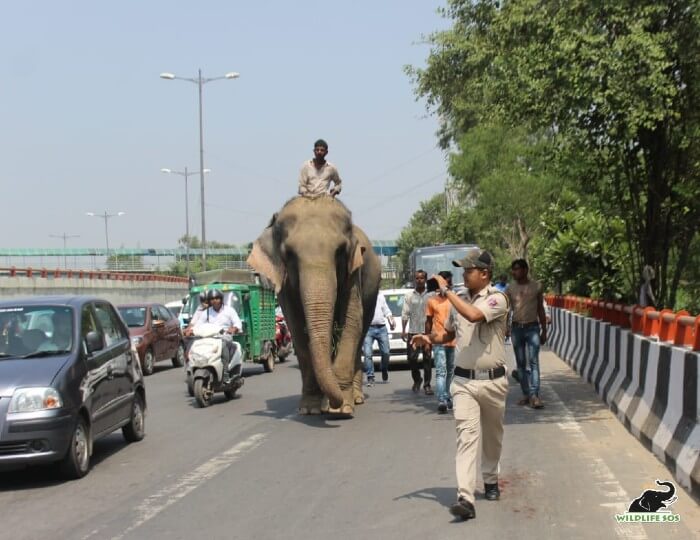
Jasmine concurred to her oppressive fate each day that she spent walking on the unforgiving roads of Delhi. It was ordered by the court of Law that Delhi will follow Mumbai’s example and conclude the toxic relationship with captive elephants. The elephant confiscation, led by the Delhi Forest Department, was initiated and as time neared, on the fateful day of 18th September 2019, amongst much furore and non-cooperation by her owners, Jasmine became a free elephant.
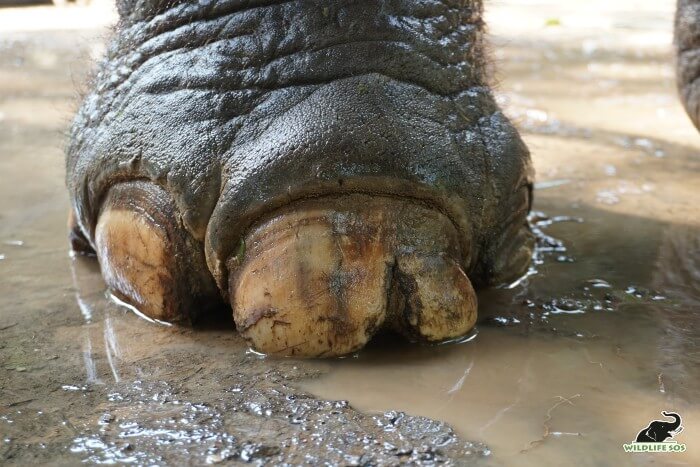
While her owners interfered in the confiscation process, Wildlife SOS assisted the Forest Department with Jasmine’s safe rehabilitation at the Elephant Rehabilitation Centre, in Haryana. Our rescue team consisted of our veteran caregivers who comforted Jasmine and coaxed her to step into her new life. Within a few minutes of being acquainted with her, we knew she was a mellow, timid elephant, who is slightly anxious about her new surroundings.
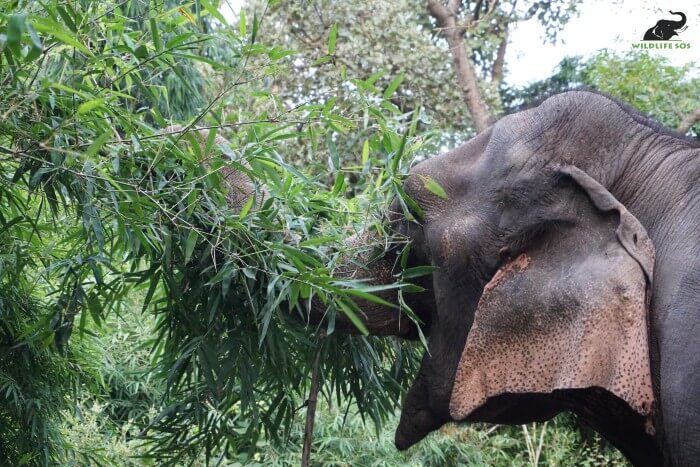
Two years since that day and Jasmine has been steadily recovering under our care, gradually liberating from her past. Our dear Jasmine spends her entire day in the company of her companion, Daisy, who was also rescued from Delhi and is at complete loss of vision. Jasmine has assumed the role of being her guide and always leads the way in their walks, never letting Daisy out of sight. She follows Daisy around and will always rumble out to her if she strays too far into the forest!
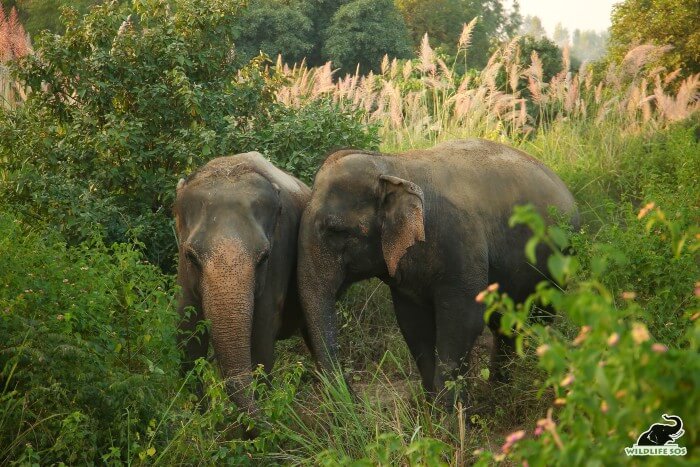
An emaciated Jasmine now weighs nearly 3918 kgs and her diet consists of sugarcane, cucumber, watermelons and pumpkins but there is a special place in her heart for apples and bananas! In her fruit bucket, she will always go straight for bananas, and even sneak a few from Daisy’s bucket – displaying a rather mischievous side to her personality.
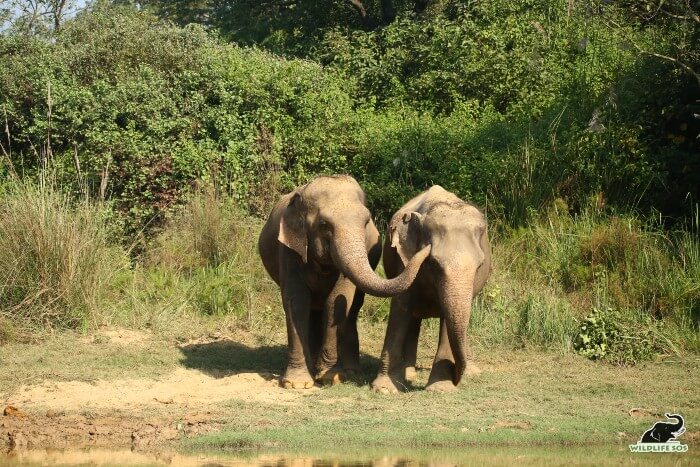
Having spent her entire life walking on hard concrete roads, the soft forest floor and the gentle crush of twigs under her feet spells relief for her ailing limbs. She receives joint supplements for arthritis, which are strategically concealed in scooped out, hollow cucumbers as she munches on them. The specialized care and treatment that Jasmine receives is what each captive elephant deserves in the country.
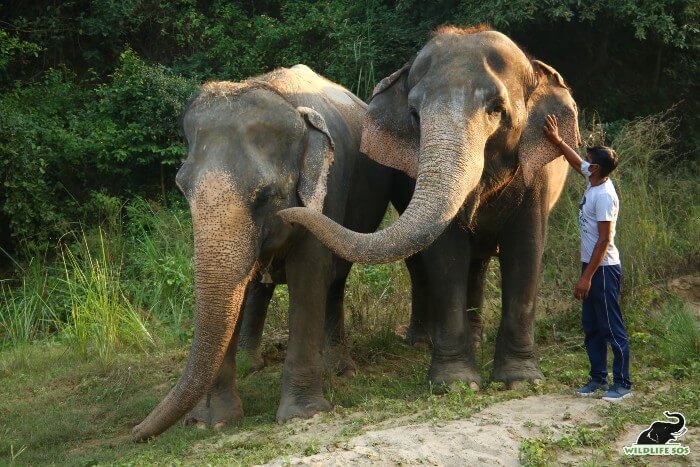
Their rescue and rehabilitation can be expedited only with the support of the Government, which ends up becoming a long-drawn legal battle. When it comes to saving India’s elephants, Wildlife SOS never leaves any stone unturned as we track hundreds of elephants at the same time, liaise with the Government and prioritise the elephant’s care and comfort.
Jasmine’s story reminds us of the power that authorities hold in changing the lives of these ailing elephants and how there is hope after all for elephants in the country. Today, in the loving company of her herd, Jasmine is a master of her whims – her caregiver prioritises her comfort over everything and our field team ensures that she goes for her regular exercised walks, which often conclude with a visit to the mud bog.
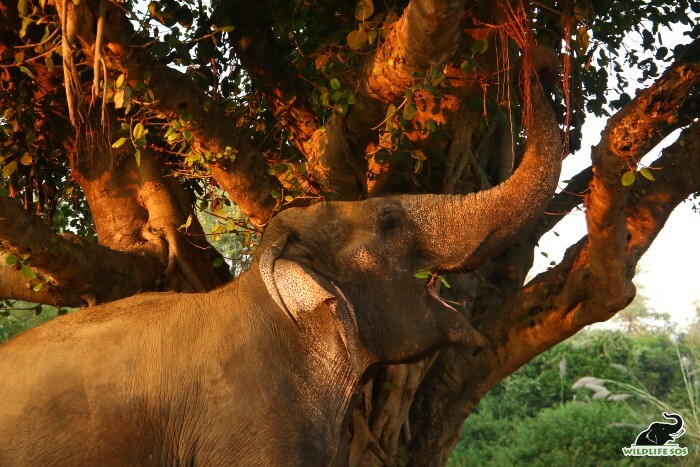
Being a complete water baby, Jasmine’s love for the pool is unmatched, she spends hours splashing around in the water, filling her trunk and spraying it all across herself. There are times; we only spot the tip of her trunk and her leg, breaking the surface of the water as she delightfully trumpet.
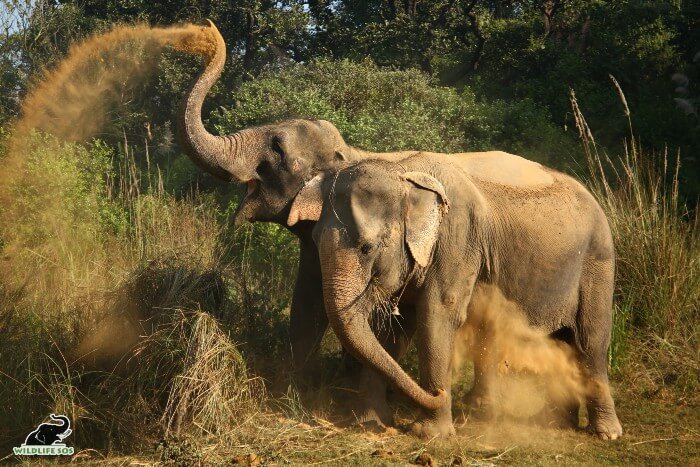
She loves her long naps that go well into the early hours of the morning but as soon as Daisy wakes up, Jasmine follows and the duo can be seen walking around, foraging on fresh grass. The weather has been exceedingly pleasant lately, wherein Northern parts of India have received record-breaking rainfall, thus giving everyone a respite from the heat. While Jasmine stays inside her enclosure during the rains, she lifts her trunk and gently rumbles out, feeling at ease to her surroundings.
Many other states in India are home to elephants subjected to abuse and ill-treatment, being exploited to a point where they ultimately collapse out of exhaustion. Metropolitans like Delhi and Mumbai, with the ban of captive elephants in the States, have set examples for other cities to follow. Elephants do not belong in cities, they belong only to the forest – exactly how humans belong to the cities and not in forests.
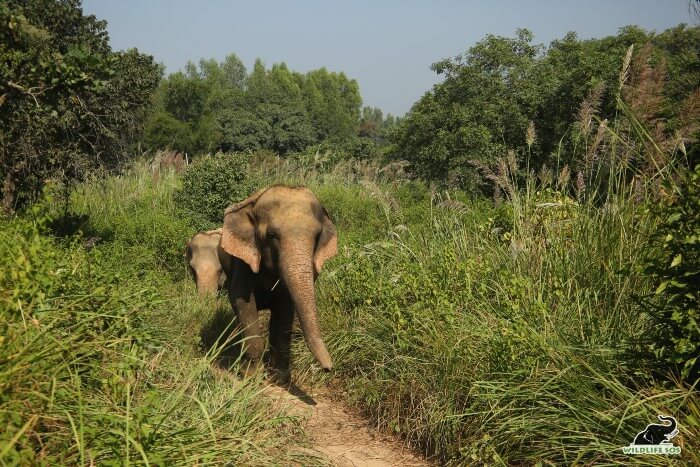
What you can do as a concerned citizen when you witness elephant cruelty is to immediately reach out to the State Forest Department. It is of utmost importance that proper proof is submitted to the authorities in order to initiate investigation and confiscation before rehabilitation. Parallely, if you love elephants, never ride them or encourage their use for the begging industry – for every penny you spend, you directly play a role in the illegal wildlife trade and poaching.
To celebrate Jasmine’s strength and spirit, please consider becoming monthly donor or sponsor for her and support her healing journey with us at Wildlife SOS.

